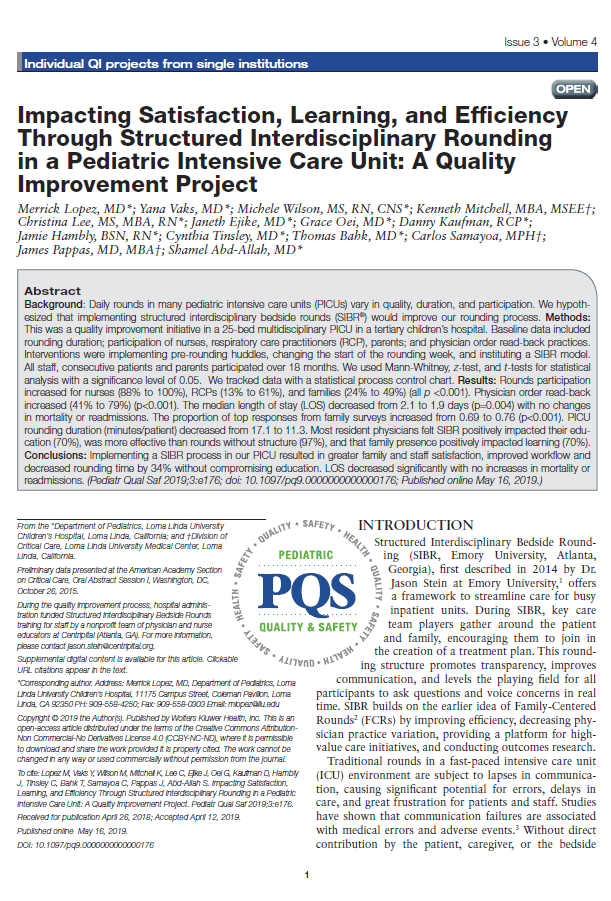
Impacting Satisfaction, Learning, and Efficiency Through Structured Interdisciplinary Rounding in a Pediatric Intensive Care Unit

Top Results
Overview
In a study conducted at Loma Linda University Children’s Hospital, the implementation of Structured Interdisciplinary Bedside Rounds (SIBR) in a Pediatric Intensive Care Unit (PICU) improved family and staff satisfaction, workflow efficiency, and resident education.
Objectives
To assess the impact of Structured Interdisciplinary Bedside Rounds (SIBR) on rounding efficiency, interdisciplinary participation, family satisfaction, and resident education in a PICU.
Methods
The study was a quality improvement initiative conducted in a 25-bed multidisciplinary PICU over 18 months. Interventions included pre-rounding huddles, changing the start of the rounding week, and implementing the SIBR model. Data were collected on rounding duration, interdisciplinary participation, family satisfaction, and physician order read-back practices. Statistical analysis included Mann-Whitney, z-test, and t-tests.
Results
Rounding Duration
Decreased from 17.1 minutes per patient to 11.3 minutes per patient (P<0.001)
Interdisciplinary Participation
Nurses: Increased from 88% to 100% (P<0.001)
Respiratory Care Practitioners (RCPs): Increased from 13% to 61% (P<0.001)
Families: Increased from 24% to 49% (P<0.001)
Physician Order Read-Back
Increased from 41% to 79% (P<0.001)
Length of Stay (LOS)
Decreased from a median of 2.1 days to 1.9 days (P=0.004)
Family Satisfaction
Proportion of top responses from family surveys increased from 0.69 to 0.76 (P<0.001)
Resident Education
70% of residents felt SIBR positively impacted their education
97% found SIBR more effective than rounds without structure
70% believed family presence positively impacted learning
Conclusion
The implementation of SIBR in a PICU led to greater family and staff satisfaction, improved workflow efficiency, and enhanced resident education. SIBR reduced rounding time without compromising the quality of care, mortality, or readmission rates, indicating its value in a busy pediatric intensive care environment.




